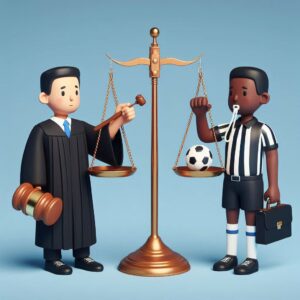


The more you know



The more you know


ages 8+
This course helps teens understand the difference between laws and rules, why they matter, and how breaking either one can impact their lives. We’ll keep it real, give you practical examples, and make sure you know what’s at stake.

Legislation: Laws, statutes, or regulations enacted by a legislative body.
Jurisdiction: The authority or power to make legal decisions and judgments.
Statute: A written law passed by a legislative body.
Regulation: A rule or directive made and maintained by an authority.
Enforcement: The act of compelling observance of or compliance with a law, rule, or obligation.
Compliance: Acting in accordance with rules, regulations, or laws.
Adjudication: The legal process of resolving a dispute or determining rights and obligations.
Amendment: A change or addition to a legal document or law.
Due Process: Fair treatment through the judicial system, especially as a citizen’s entitlement.
Sanction: A penalty or coercive measure imposed to ensure compliance with rules or laws.
Civil Law: The system of law concerned with private relations between members of a community rather than criminal, military, or religious affairs.
Criminal Law: The body of law that relates to crime.
Litigation: The process of taking legal action.
Injunction: A judicial order that restrains a person from beginning or continuing an action threatening or invading the legal right of another.
Precedent: A legal decision or form of proceeding serving as an authoritative rule or pattern in future similar or analogous cases.
Constitution: A body of fundamental principles or established precedents according to which a state or other organization is acknowledged to be governed.
Misdemeanor: A minor wrongdoing.
Felony: A crime, typically one involving violence, regarded as more serious than a misdemeanor, and usually punishable by imprisonment for more than one year or by death.
Habeas Corpus: A writ requiring a person under arrest to be brought before a judge or into court, especially to secure the person’s release unless lawful grounds are shown for their detention.
Michigan Legislature
Respect Others: Treat people the way you want to be treated. It’s basic decency.
Listen More, Talk Less: You’ll learn a lot by listening, and others will appreciate it too.
Be Honest: Lies only make things complicated. Keep it real.
Take Responsibility: Own up to your mistakes and learn from them.
Keep Your Promises: Your word should mean something. If you say you’ll do it, do it.
Be Kind: It doesn’t cost anything to be nice. Spread positivity.
Respect Boundaries: Everyone has their limits. Respect them.
Think Before You Act: Consider the consequences of your actions before you do something you might regret.
Seek Understanding: Try to see things from others’ perspectives. It helps avoid misunderstandings.
Stay Positive: A positive attitude can make a big difference in how you and others feel.
Cooperate and Collaborate: Work together with others to achieve common goals.
Be Open-Minded: Be willing to consider new ideas and perspectives.
Show Empathy: Try to understand and share the feelings of others.
Be Reliable: Keep your promises and commitments.
Practice Self-Control: Manage your emotions and reactions appropriately.
These rules are simple, but when everyone follows them, it makes life smoother for everyone.